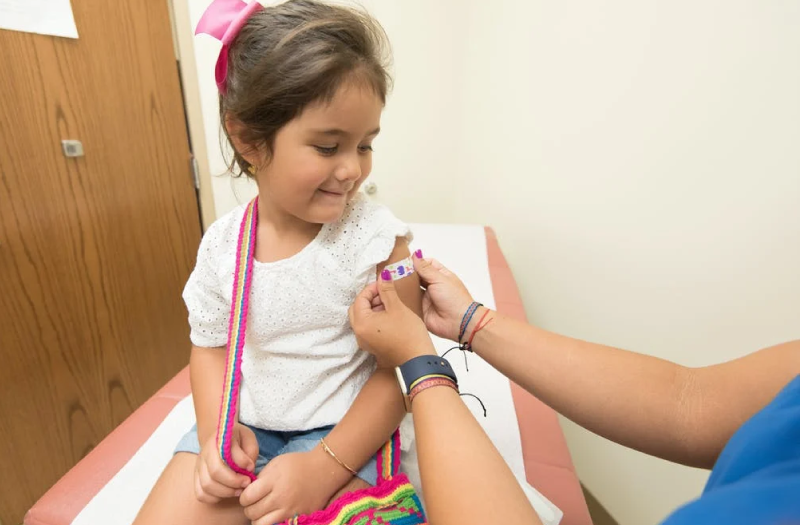FDA alerts health care professionals of potential risks associated with compounded ketamine nasal spray
February 16, 2022
FDA has become aware of safety reports involving compounded intranasal ketamine to treat psychiatric disorders which may be putting patients at risk. Compounded drugs are not FDA-approved, which means FDA has not evaluated their safety, effectiveness, or quality prior to marketing.
Ketamine hydrochloride[a] (tradename: Ketalar) is a Schedule III controlled substance that is FDA-approved as an intravenous or intramuscular injection solution for induction and maintenance of general anesthesia. Ketamine is a racemic mixture consisting of two mirror image molecules, R- and S-ketamine. FDA-approved labeling for ketamine contains warnings and precautions on hemodynamic instability, emergence reactions (vivid dreams, hallucinations, or delirium), respiratory depression, and drug-induced liver injury, among others.
Ketamine is not FDA-approved for the treatment of any psychiatric disorder. However, the "S" form of ketamine, which is derived from ketamine and known as Spravato (esketamine), is a Schedule III controlled substance that was approved by FDA in 2019 as a nasal spray for treatment-resistant depression in adults and depressive symptoms in adults with major depressive disorder with acute suicidal ideation or behavior, in conjunction with an oral antidepressant. Because of the potential risks associated with Spravato (esketamine), including sedation, dissociation, and abuse or misuse, its label contains Boxed Warnings, and Spravato is subject to strict safety controls on dispensing and administration under a safety program called a Risk Evaluation and Mitigation Strategy (REMS). The Spravato REMS[1]program requires Spravato (esketamine) to be dispensed and administered in health care settings that are certified in the REMS. Spravato (esketamine) cannot be dispensed for use outside the certified healthcare setting. Patients must be monitored inside the healthcare setting after administration for a minimum of two hours until patients are safe to leave.
Though esketamine is derived from racemic ketamine, they are not the same drug. Animal studies have shown that racemic ketamine can cause lesions in the brains of rodents;[2] the relevance of this finding to humans is unknown. Animal studies with esketamine do not show these brain lesions.[3]
FDA is aware that some pharmacies compound nasal spray formulations of ketamine either alone or in combination with other ingredients, and there have been a concerning number of case reports of adverse events in recent years. Given these reports and the lack of standardized safety measures associated with the use of compounded ketamine nasal sprays, patients may be at risk of serious adverse events and potential misuse and abuse. FDA is issuing this alert due to the increased awareness of adverse events reported, the seriousness of these adverse events, and the likelihood that adverse events related to compounded drug products are under-reported, given that pharmacies that compound drugs under section 503A generally do not report them.
Case Findings and DiscussionFDA searched the FDA Adverse Event Reporting System (FAERS) database and the medical literature from April 2011 through January 2022 and identified five cases, reported between 2016-2021, associated with psychiatric events such as delusion, dissociation, visual hallucination, and panic attack as well as abuse and misuse[b] following the use of compounded ketamine nasal spray. The reported concentrations of compounded ketamine nasal spray ranged from 125 - 200 mg/mL. Frequency of use varied from three sprays three times a day to six sprays eight times a day. The amount of medication administered to the patients with each spray is unknown. In most case reports, the patients self-administered the product at home, and it is unknown whether they were observed or monitored by a healthcare professional.
Because compounded ketamine nasal spray products are not FDA-approved, there is no FDA-approved dosing regimen for these products. There are also no data to support dosing conversion between Spravato (esketamine) nasal spray and compounded ketamine nasal spray. However, although ketamine is not identical to Spravato, ketamine includes both enantiomers of the molecule, including Spravato's active ingredient, esketamine. Ketamine and Spravato (esketamine) also share a mechanism of action in that both are N-methyl D-aspartate receptor antagonists. Given these similarities, it is plausible that, in addition to the warnings and precautions associated with FDA-approved ketamine, psychiatric events could be induced or worsened with the use of compounded ketamine nasal spray, especially given the fact that FDA is aware that it is being used at different doses and a higher frequency than are currently approved for Spravato (esketamine). The benefit and risk profile for Spravato (esketamine) has been established, as described in the FDA-approved labeling and the approved Spravato REMS program, with elements to assure safe use. However, the benefit and risk profile for compounded ketamine nasal spray has not been evaluated. As such, FDA has concerns about increased potential risk of adverse events, misuse, and abuse associated with compounded ketamine nasal spray given the apparent different doses, higher frequency of use compared to Spravato (esketamine), and at home administration reported to the FAERS database.
ConclusionThere is no FDA-approved ketamine nasal spray product. Compounded drugs are not FDA-approved, which means FDA has not evaluated their safety, effectiveness, or quality prior to marketing. Therefore, compounded drugs should only be used in patients whose medical needs cannot be met by an FDA-approved drug. The dispensing of compounded ketamine nasal spray for home use when safe and effective dosing for psychiatric indications has not been established may place the patient at risk for serious psychiatric adverse events, misuse, and abuse. Healthcare professionals should be advised that animal studies have shown an association between racemic ketamine and brain lesions, and that the implications of the animal findings to humans are unknown. FDA recommends that healthcare professionals be aware of the potential risks associated with compounded ketamine nasal spray.
SOURCE:







